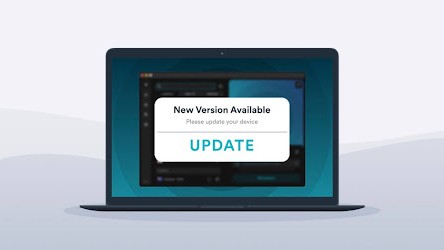- Surfshark now only supports the four latest iOS and macOS releases
- It dropped legacy iOS and macOS support to protect users from threats
- The VPN proposes solutions for users unable to update their devices
Surfshark is ending official support for legacy iOS and macOS versions, focusing instead on the newest Apple releases.
Surfshark, which ranks second in our list of the best VPN providers available, announced it now only covers the four most recent iOS and macOS releases. At the time of writing, it continues to fully support iOS 15 or later versions, and macOS 12 (Monterey) and later.
When a new version of macOS or iOS drops, Surfshark’s support for the oldest of the previously supported versions ends. This means older iPhones, iPads, and Macs will no longer receive app updates as Surfshark looks to “encourage everyone to use the safest devices.”
Existing installations on unsupported systems will continue to work for now, but users won’t be able to expect future updates. Needless to say, Surfshark is recommending users update their devices in order to continue receiving the strongest protection possible.
Why the change is happening

Surfshark’s shift mirrors Apple’s rapid rollout of new operating-system versions, a trend that has left a shrinking base of legacy users.
As announced in a recent blog post, by dropping support for older iOS and macOS releases, Surfshark can reallocate resources toward security enhancements and new features for current devices that receive regular security patches, helping users stay ahead of emerging threats.
This includes rolling out new features and technologies, an improved interface and app performance, and a streamlined update process.
It’s worth bare in mind that legacy systems, lacking these same updates, remain vulnerable to known and emerging threats, putting users at unnecessary risk.
What legacy Surfshark users need to do
Surfshark stresses the importance of subscribers updating their devices in order to receive the latest security improvements.
To do this, users can go to “Settings” and “Software Update” to install the newest version of iOS or macOS. Upgrading ensures continued access to official app updates, bug fixes, and Surfshark’s full suite of security features, including MultiHop servers and Surfshark Antivirus.
If your hardware can’t be upgraded – perhaps because it’s too old to meet Apple’s minimum requirements – Surfshark has a few recommendations.
For macOS, one option is to install an older version of the Surfshark app. Surfshark provides step-by-step installation guides all the way back to version 10.12 (Sierra). Further options include connecting via manual WireGuard configurations using a third-party app, downloading and connecting using OpenVPN configurations, or using the built-in manual IKEv2 connection.
iOS users have the option of manual WireGuard and OpenVPN connections as well, or built-in manual IKEv2 connections.
Surfshark provides 24/7 support via live chat and email to answer any questions you might have. By taking action before the next Apple release, Surfshark users can avoid service interruptions and continue browsing securely.
You might also like
The post Surfshark drops legacy iOS and MacOS support, shifts focus to latest Apple releases first appeared on TechToday.
This post originally appeared on TechToday.
